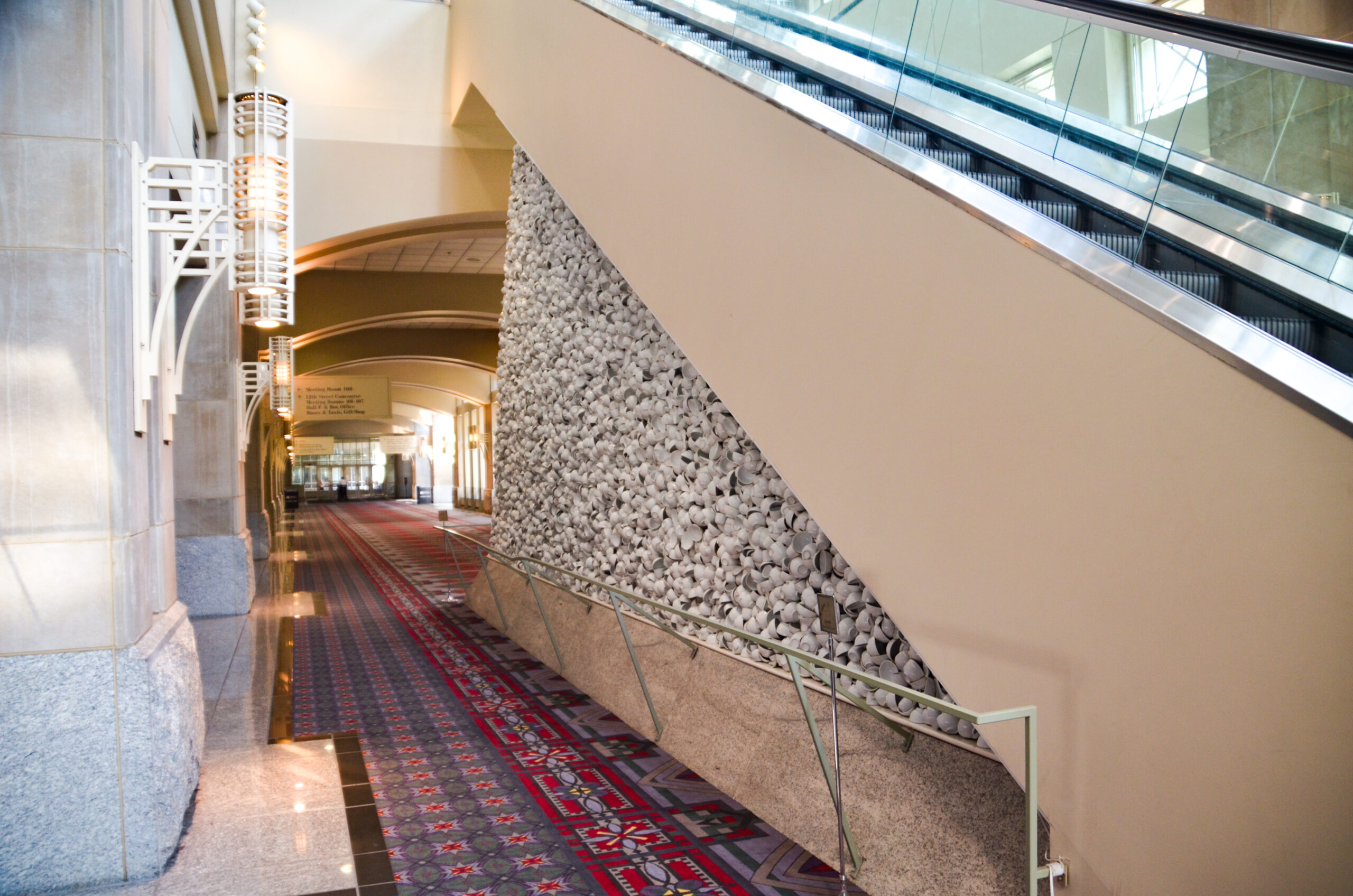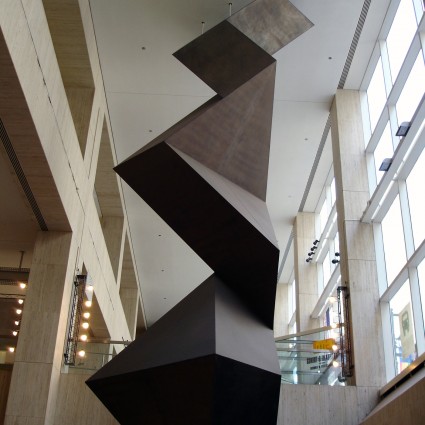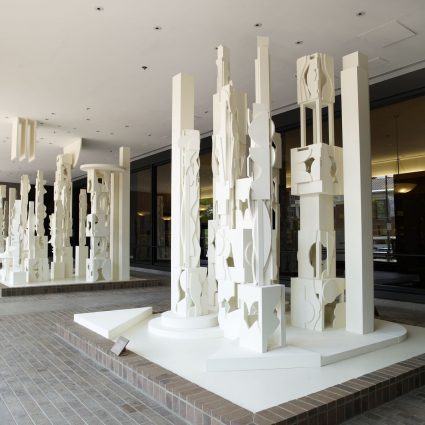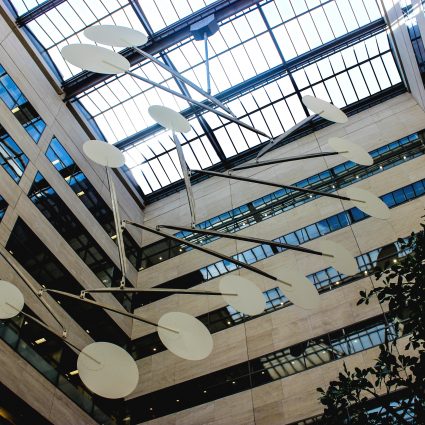At A Glance
China Wedge is made of over 20,000 china tea cups, rice bowls, and soup spoons
Hidden in a box inside the wedge are sealed testimonials of Asian American immigrants’ experiences from Philadelphia’s nearby Chinatown
The words “China” and “Wedge” potentially serve multiple meanings, referring to the material and shape of the work as well as Asian American experiences
Mei-ling Hom’s China Wedge is a triangular wedge made of over 20,000 porcelain tea cups, rice bowls, and soup spoons. The artwork includes a hidden, sealed box with unopened written testimonials from Asian American Philadelphia residents sharing their embarrassing and sometimes upsetting stories as immigrants in the United States.
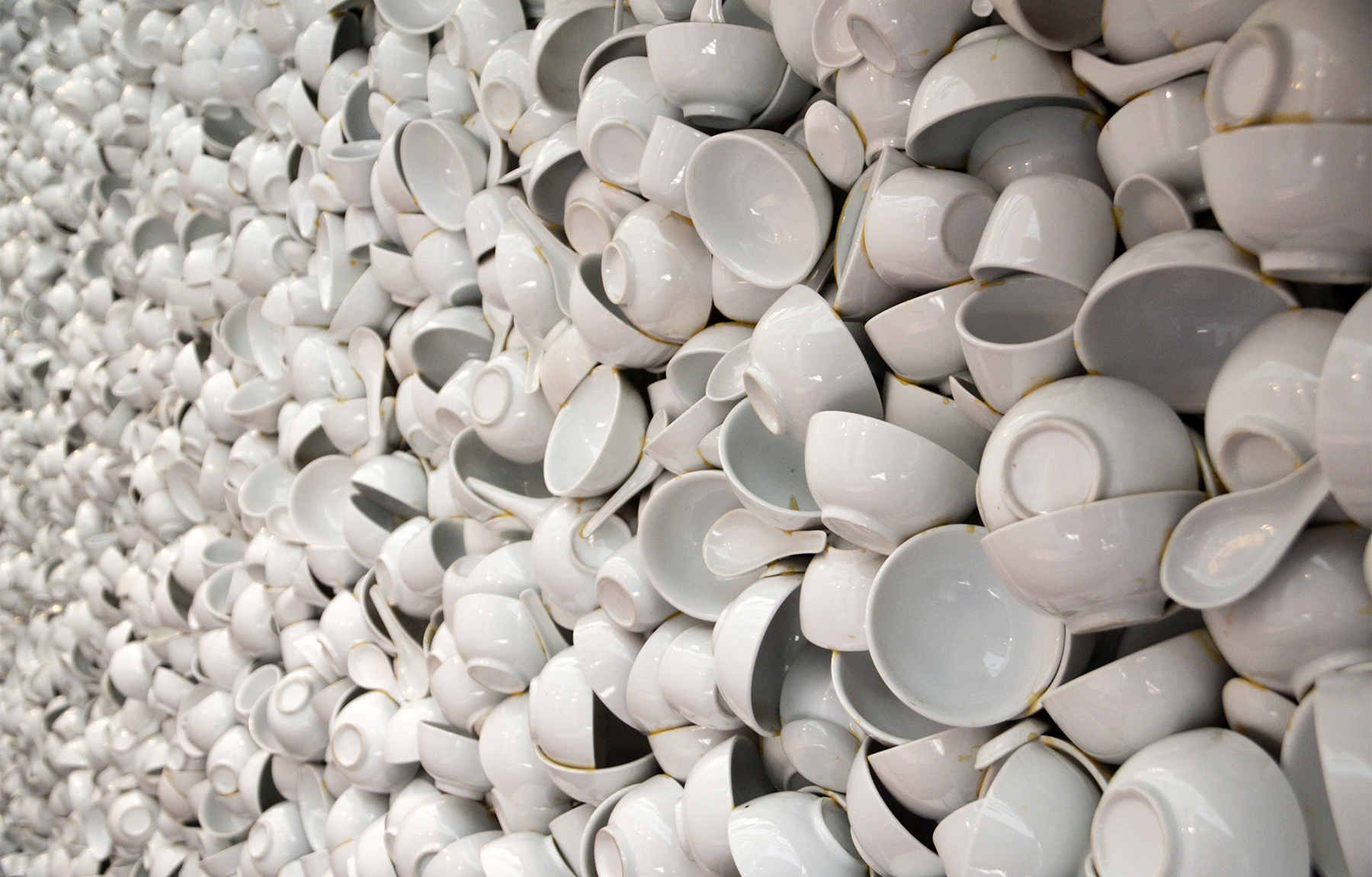
Located underneath the Pennsylvania Convention Center’s Arch Street Concourse escalator, China Wedge’s site was deliberately chosen to represent the limitations and restrictions faced by Asian American immigrants. The word “China” in its title may simultaneously refer to the country of origin of many Philadelphia Chinatown residents and the porcelain dishes that compose the artwork, while “Wedge” may refer to the physical incision in the escalator and the “wedge” of the restaurant trade through which most immigrants in the adjacent area entered America.
Mei-ling Hom is a sculptor based in Philadelphia and Allegany County, New York, whose work is featured throughout the United States. She obtained her MFA from Alfred University in New York in 1987 and BA from Kirkland College in New York in 1973.
